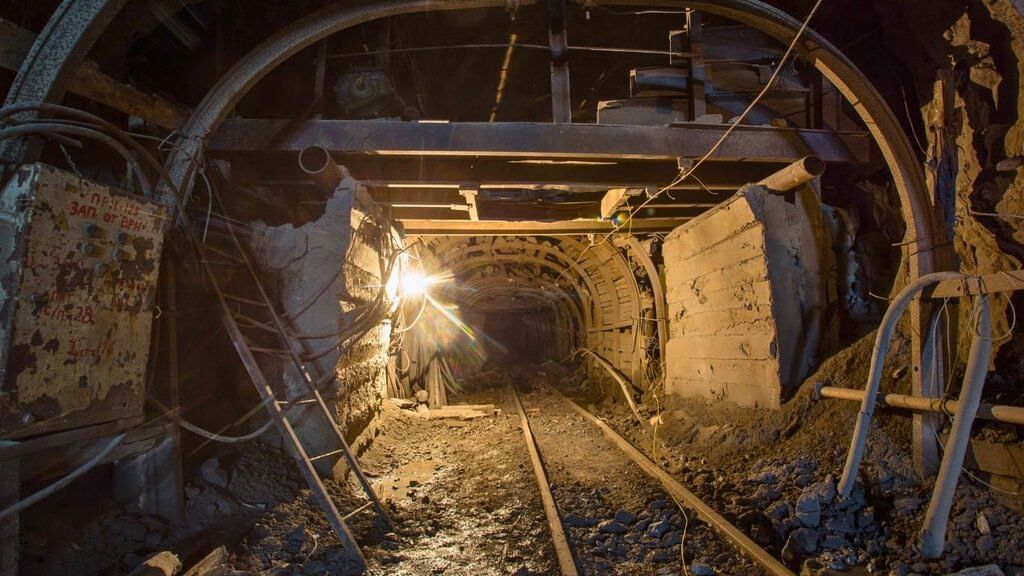UPSC Exam > UPSC Notes > PIB (Press Information Bureau) Summary > PIB Summary - 7th Aug 2025
PIB Summary - 7th Aug 2025 | PIB (Press Information Bureau) Summary - UPSC PDF Download
Benefits of Underground Coal Mining

Context
India is moving towards cleaner and more efficient mining practices. The government is encouraging underground coal mining, which is less disruptive and more sustainable than open-pit mining, by making policy changes to support deeper and more environmentally friendly extraction methods.
Overview of News
The Government of India has emphasized the benefits of underground coal mining, including its positive impact on the environment and socio-economic factors. To promote its adoption, the government has introduced policy incentives aimed at encouraging this more sustainable mining practice.
Key Benefits
- Minimized Surface Impact: Underground coal mining significantly reduces damage to surface infrastructure, farmland, forests, and local communities due to its minimal surface disturbance.
- Environmental Advantages: This method leads to lower dust and noise pollution. It also has a smaller surface footprint, which helps reduce indirect greenhouse gas emissions associated with land degradation and loss of vegetation.
- Operational Reliability: Underground mines are more resilient to adverse weather conditions such as heavy rains and floods, making operations safer and more reliable throughout the year.
Government Incentives (April 2025 Amendments)
- Revenue-share Floor: The revenue-share floor has been reduced to 2%, making underground mining projects more attractive to developers.
- Waiver of Upfront Amount: The full waiver of the Upfront Amount reduces the initial financial burden for developers, encouraging more participation in underground mining projects.
Analysis for UPSC Aspirants
- Policy Effectiveness: The incentivization of underground mining aligns with India’s objectives for sustainable resource use while balancing the need for development.
- Environmental & Social Implications: By minimizing ecological damage and enhancing operational safety, the policy addresses both environmental sustainability and the welfare of local communities.
- Economic Trade-offs: Although underground mining may involve higher operational costs, the support from government policy helps mitigate financial barriers, potentially improving return on investment (ROI) and long-term viability.
- Strategic Relevance: Promoting deeper coal extraction not only supports national energy security but also aligns with global environmental commitments.
Way Forward & Recommendations
- Capacity Building: Invest in training programs for mine engineers and workers focused on underground mining technologies and safety protocols to ensure skilled workforce development.
- Monitoring Mechanisms: Establish rigorous environmental and safety audit processes to monitor the ecological impact and ensure the safety of workers in underground mining operations.
- Technology & Innovation: Encourage the adoption of advanced technologies such as automation, mechanized mining systems, and ventilation monitoring to enhance operational efficiency and safety in underground mines.
- Balancing Resource Strategy: Gradually increase the scale of underground mining while simultaneously advancing renewable energy initiatives to create a balanced and sustainable energy portfolio for the future.
The document PIB Summary - 7th Aug 2025 | PIB (Press Information Bureau) Summary - UPSC is a part of the UPSC Course PIB (Press Information Bureau) Summary.
All you need of UPSC at this link: UPSC
FAQs on PIB Summary - 7th Aug 2025 - PIB (Press Information Bureau) Summary - UPSC
| 1. What are the main advantages of underground coal mining compared to surface mining? |  |
Ans.Underground coal mining offers several advantages over surface mining, including reduced environmental impact, as it minimizes land disturbance and preserves the landscape. It also tends to have a smaller footprint, which can protect ecosystems and habitats. Additionally, underground mining can access deeper coal reserves that are not reachable by surface methods, potentially leading to higher overall coal production. Safety measures and technologies have also improved, making underground mining operations more efficient.
| 2. How does underground coal mining contribute to energy security? |  |
Ans.Underground coal mining plays a significant role in energy security by ensuring a stable supply of coal, which is a crucial energy source for electricity generation and industrial processes. By tapping into domestic coal reserves, countries can reduce their dependence on imported energy, enhancing national energy independence. This, in turn, contributes to a more reliable energy infrastructure and supports economic stability.
| 3. What are the safety measures implemented in underground coal mining? |  |
Ans.Safety measures in underground coal mining include the use of advanced ventilation systems to ensure a steady flow of fresh air, reducing the risk of harmful gases accumulating. Regular safety training for workers is also essential, along with the use of personal protective equipment (PPE). Additionally, monitoring systems for gas levels, ground stability, and emergency response protocols are in place to protect miners and mitigate hazards.
| 4. What environmental considerations are associated with underground coal mining? |  |
Ans.While underground coal mining has a lower surface impact compared to surface mining, it still poses environmental challenges. Issues such as groundwater contamination, subsidence, and the potential release of methane, a potent greenhouse gas, must be managed. Environmental regulations and monitoring are crucial to minimize these impacts, ensuring that mining activities comply with sustainability standards and protect surrounding ecosystems.
| 5. How does underground coal mining impact local economies? |  |
Ans.Underground coal mining can significantly impact local economies by providing employment opportunities and stimulating economic growth. It creates jobs not only in mining operations but also in related sectors such as transportation, equipment manufacturing, and services. Furthermore, the revenue generated from coal sales can contribute to local infrastructure development and community programs, fostering overall economic development in mining regions.
Related Searches
















